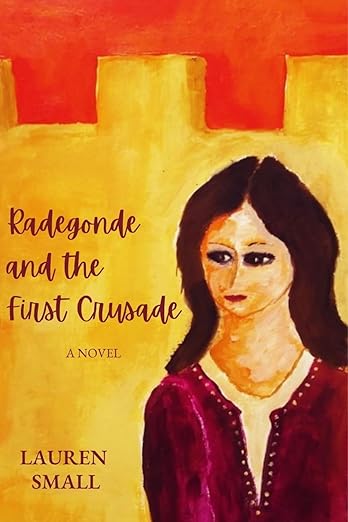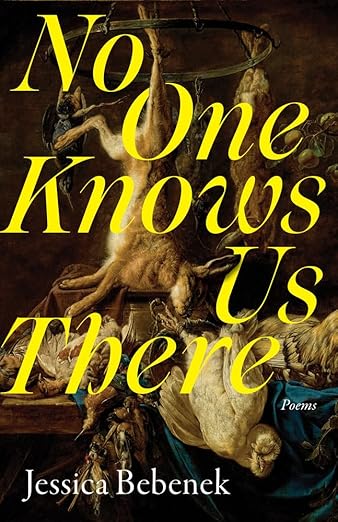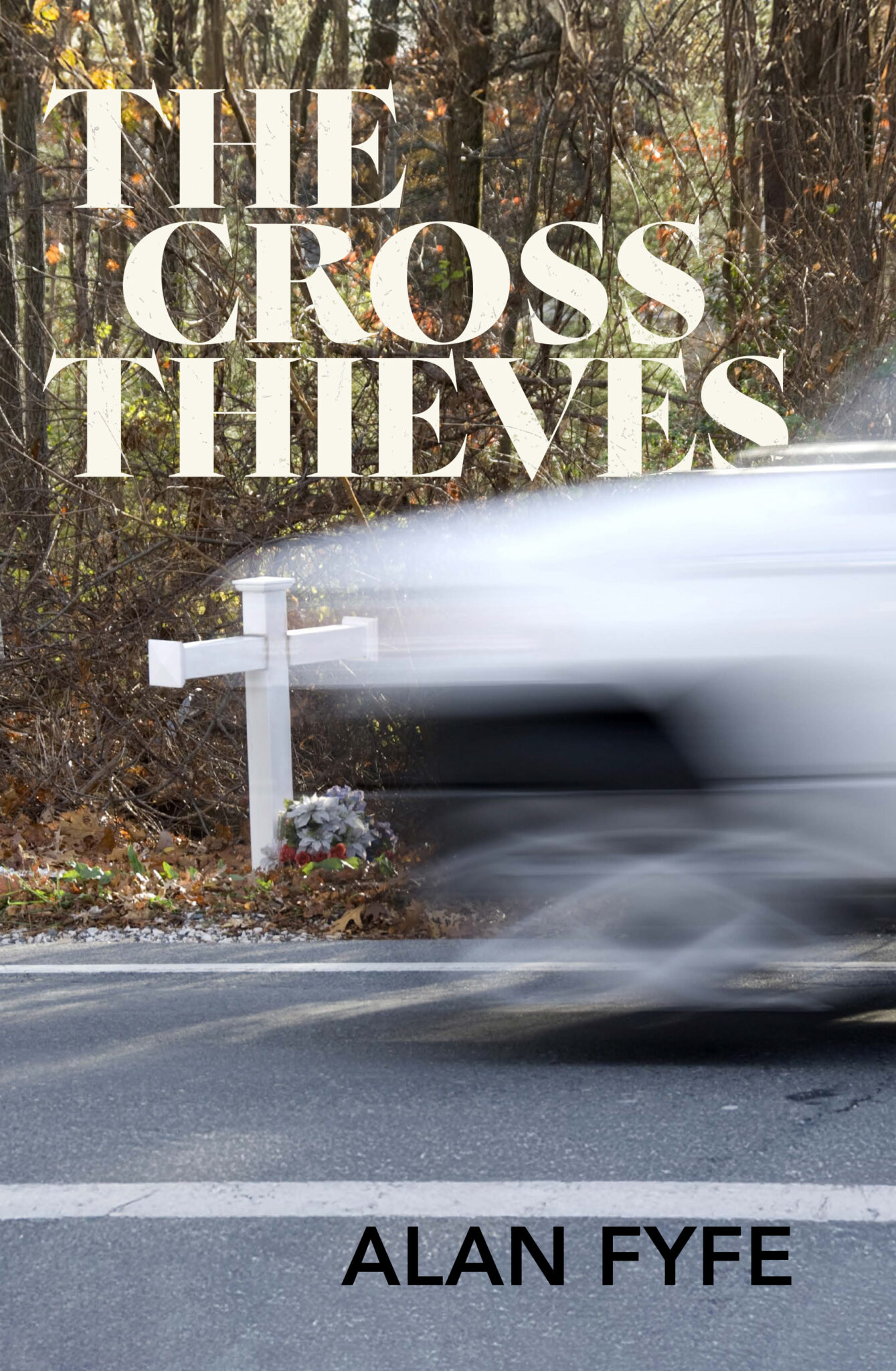 Radegonde and the First Crusade spans four years from the time Radegonde leaves home to the bloody conclusion of the novel. Lauren Small vividly brings the time to life while spinning a tale of one young woman’s struggle with faith. At the Council of Clermont at the end of 1095, Pope Urban II issued a call to arms that would result in the first crusade – the People’s Crusade – and the capture of Jerusalem, liberating the holy city from Muslim control. Related in the present tense by an omniscient third-person narrator, the story focuses on Radegonde, both her interior struggles with faith and sin, forgiveness and love, and the outward challenges she faces.
Radegonde and the First Crusade spans four years from the time Radegonde leaves home to the bloody conclusion of the novel. Lauren Small vividly brings the time to life while spinning a tale of one young woman’s struggle with faith. At the Council of Clermont at the end of 1095, Pope Urban II issued a call to arms that would result in the first crusade – the People’s Crusade – and the capture of Jerusalem, liberating the holy city from Muslim control. Related in the present tense by an omniscient third-person narrator, the story focuses on Radegonde, both her interior struggles with faith and sin, forgiveness and love, and the outward challenges she faces.
Author:
A review of No One Knows Us There by Jessica Bebenek
 Brilliantly and realistically, Bebenek narrates no turning point, reaches no culminating moment, offers no conclusions. The final poem sends the reader back to the beginning and the inescapability of death. Rooted in concrete images, the poems resist both pious moralizing and maudlin regret by honestly depicting an embodied self, enmeshed in the empirical world. With economy and specificity, Bebenek’s lines embrace the totality of experience.
Brilliantly and realistically, Bebenek narrates no turning point, reaches no culminating moment, offers no conclusions. The final poem sends the reader back to the beginning and the inescapability of death. Rooted in concrete images, the poems resist both pious moralizing and maudlin regret by honestly depicting an embodied self, enmeshed in the empirical world. With economy and specificity, Bebenek’s lines embrace the totality of experience.
A review of The Cross Thieves by Alan Fyfe
 The book is full of beautiful, funny, often tragic contradictions that are so well woven into the fast-paced plot that at times you have to force yourself to slow down to appreciate them. The Cross Thieves is a terrific book, full of gritty violence and desperate characters, but also infused with a tenderness that borders on transformative.
The book is full of beautiful, funny, often tragic contradictions that are so well woven into the fast-paced plot that at times you have to force yourself to slow down to appreciate them. The Cross Thieves is a terrific book, full of gritty violence and desperate characters, but also infused with a tenderness that borders on transformative.
A review of Prairie Ashes by Ben Nadler
 Prairie Ashes is well worth your time. Whatever your interests, it is the duty of the working class as much as it is the rentier class to understand what was once possible in the pursuit of a more equal society. Orwell found it once in Spain; even if for a brief time, it proves that things must not always be as they are, as well that authority is not invincible or necessary in its unjustified form.
Prairie Ashes is well worth your time. Whatever your interests, it is the duty of the working class as much as it is the rentier class to understand what was once possible in the pursuit of a more equal society. Orwell found it once in Spain; even if for a brief time, it proves that things must not always be as they are, as well that authority is not invincible or necessary in its unjustified form.
A Shapeshifter in Love: Marie de France’s Yonec and Gabrielle-Suzanne de Villeneuve’s The Beauty and the Beast translated by Katharine Margot Toohey
The story progresses quickly and even though we are well-aware of the outcome – the happily-ever-after ending is no spoiler here – the emphasis on Beauty’s own agency makes for a richer tale and one where the morality of beauty and love being more than ‘skin deep’ has deep resonance.
A review of Seang (Hungering) by Anne Casey
Casey explicitly frames the calculated brutality of British rule during the Great Irish Famine not as a natural disaster but as a colonial crime. Like a visit to the “Scarcity Commission” (p30), the mechanisms of tyranny return like blight to the nation’s rotting potato crops. This is a poetry which witnesses starvation; it witnesses religious and cultural bans, and ultimately, it is witness to the systematic removal of children.
Beyond Given Borders: An interview with Natalya Sukhonos
 Natalya Sukhonos was born in Odesa, Ukraine and immigrated to the US at the age of nine. She holds degrees in Comparative Literature, a Yale BA and a Harvard PhD, and she has taught at Harvard, Stanford, UC Davis, and Zayed Universities. Her first poetry collection, A Stranger Home, was published in 2020 by Moon Pie Press. In this conversation, H. L. Hix speaks with her about her most recent collection, Sunlight Trapped in Stone (Green Writers Press, 2026).
Natalya Sukhonos was born in Odesa, Ukraine and immigrated to the US at the age of nine. She holds degrees in Comparative Literature, a Yale BA and a Harvard PhD, and she has taught at Harvard, Stanford, UC Davis, and Zayed Universities. Her first poetry collection, A Stranger Home, was published in 2020 by Moon Pie Press. In this conversation, H. L. Hix speaks with her about her most recent collection, Sunlight Trapped in Stone (Green Writers Press, 2026).
New giveaway!
 We have a copy of Slipstream by Kristyn Saunders to give away!
We have a copy of Slipstream by Kristyn Saunders to give away!
To win, sign up for our Free Newsletter on the right-hand side of the site and enter via the newsletter. Winner will be chosen by the end of February from subscribers who enter via the newsletter. Good luck!
A review of Hollywood or Home by Kathryn Gray
 Gray’s poems are inspired by singers and poets as well as actors and filmmakers. “Testament” is addressed to Brandon Flowers, the lead singer for The Killers, also playing on time and sex and staying relevant as time moves on. A couple of poems are inspired by the legendary bluegrass Carter family, and another by Johnny Cash (“The Cave”: ‘Ends make fiction of our means. Johnny said it: he wasn’t lying.’). “Watermelons” is another poem for a late poet/musician, Michael Donaghy.
Gray’s poems are inspired by singers and poets as well as actors and filmmakers. “Testament” is addressed to Brandon Flowers, the lead singer for The Killers, also playing on time and sex and staying relevant as time moves on. A couple of poems are inspired by the legendary bluegrass Carter family, and another by Johnny Cash (“The Cave”: ‘Ends make fiction of our means. Johnny said it: he wasn’t lying.’). “Watermelons” is another poem for a late poet/musician, Michael Donaghy.
A review of My Little Donkey and Other Essays by Martha Cooley
 In clean, unaffected and polished prose, Cooley invites us into her world, and many of her essays follow a braided structure that pull together threads on people, animals, age and aging, accidents, and flukes and family, as well as other moments worthy of reflection. But Cooley doesn’t limit herself to braided threads. Two of her essays deploy a flash-like form in ideas and well-researched facts that seem unrelated and dot the page – until they kaleidoscopically connect.
In clean, unaffected and polished prose, Cooley invites us into her world, and many of her essays follow a braided structure that pull together threads on people, animals, age and aging, accidents, and flukes and family, as well as other moments worthy of reflection. But Cooley doesn’t limit herself to braided threads. Two of her essays deploy a flash-like form in ideas and well-researched facts that seem unrelated and dot the page – until they kaleidoscopically connect.